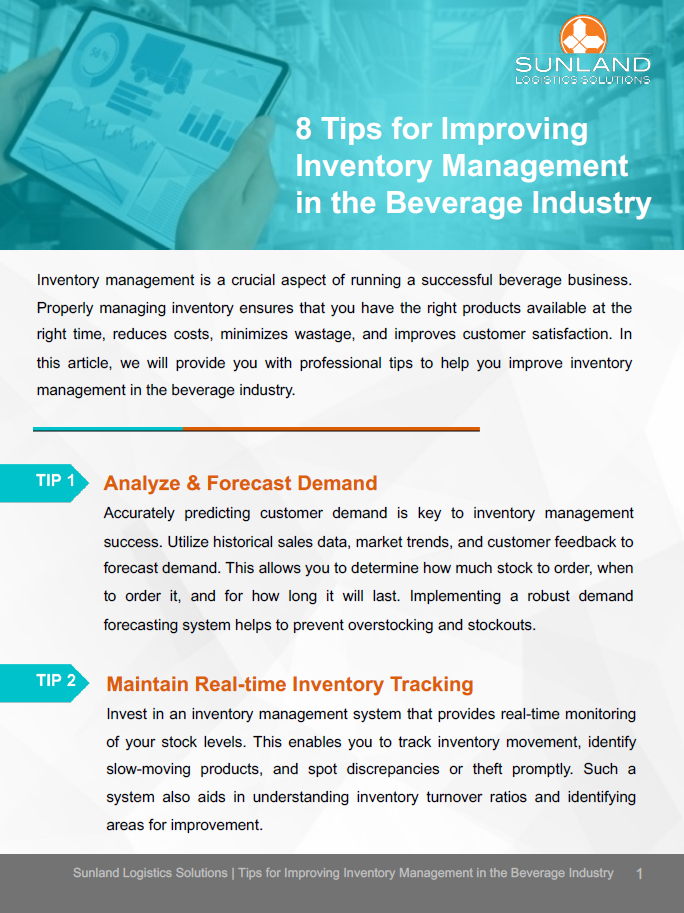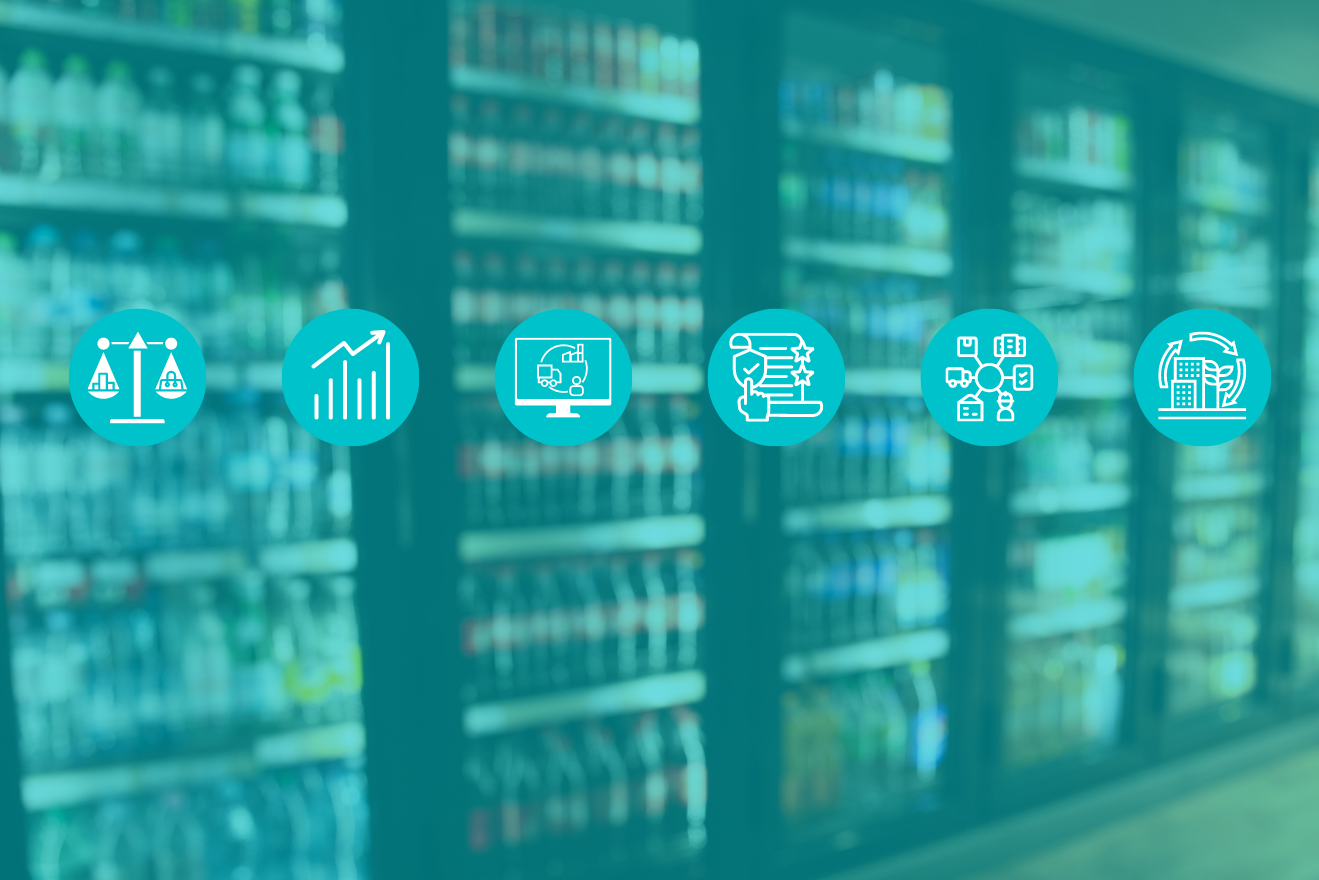The beverage industry is a complex and dynamic sector that faces numerous challenges in managing its supply chain. From sourcing raw materials to delivering finished products to customers, beverage logistics involves various obstacles to ensure efficiency and profitability. In this blog article, we will discuss some of the key challenges faced by the beverage industry in supply chain management and beverage logistics.
1. Demand Planning and Forecasting:
One of the main challenges in the beverage industry is accurately forecasting demand. With numerous factors influencing consumer preferences, such as changing tastes, health trends, and seasonal variations, it can be difficult to predict future demand accurately. Inaccurate forecasts can lead to either excess inventory or stockouts, both of which can result in significant financial losses.
2. Seasonal Demand Variability:
Many beverages, such as soft drinks and alcoholic beverages, experience significant fluctuations in demand based on seasons and holidays. For instance, during summer, the demand for cold beverages escalates, while alcoholic beverages witness a surge during festive seasons. Managing these seasonal peaks and valleys requires careful planning, including capacity adjustments, ensuring sufficient inventory levels, and optimizing production and distribution processes.
3. Supply Chain Visibility and Traceability:
With global supply chains becoming more complex, ensuring visibility and traceability of products is of utmost importance for the beverage industry. Companies need to have real-time access to information on inventory levels, production status, and transportation progress to effectively respond to customer demands and quickly detect and resolve any supply chain disruptions. Implementing advanced technologies, such as IoT sensors and blockchain, can help improve visibility and traceability throughout the supply chain.
4. Regulatory Compliance:
The beverage industry operates in a highly regulated environment, with various compliance requirements related to product safety, labeling, packaging, and transporting. Adhering to these regulations can be challenging, especially for multinational companies that need to comply with different regulations across multiple countries. Failure to comply with regulations may result in penalties, damaged reputation, and even legal consequences.
5. Supplier Management:
Managing a diverse network of suppliers can be challenging in the beverage industry. Companies need to develop strong relationships with suppliers, negotiate favorable terms, ensure quality and consistency in raw materials, and effectively handle any supplier-related disputes or disruptions. Additionally, supplier risk management is vital to mitigate any potential risks, such as supplier bankruptcies, quality issues, or supply shortages.
6. Green and Sustainable Practices:
Increasing consumer awareness about sustainability and environmental concerns has put pressure on the beverage industry to adopt green practices throughout the supply chain. This includes sourcing eco-friendly packaging materials, minimizing water usage, reducing carbon emissions, and implementing efficient waste management strategies. Integrating sustainability into the supply chain requires collaboration with suppliers, investment in eco-friendly technologies, and proactive monitoring and reporting of environmental performance.
The beverage industry faces several unique challenges in managing its supply chain. By addressing these challenges, companies can enhance operational efficiency, reduce costs, and meet the ever-changing demands of their customers. Embracing technology, fostering collaboration with suppliers, complying with regulations, and implementing sustainable practices are all essential steps to overcome these challenges and thrive in this competitive industry.
Complete the form below to receive a copy of our free guide "8 Tips for Improving Inventory Management in the Beverage Industry.

Learn more about Sunland’s services for customers in health & beverage related industries.








